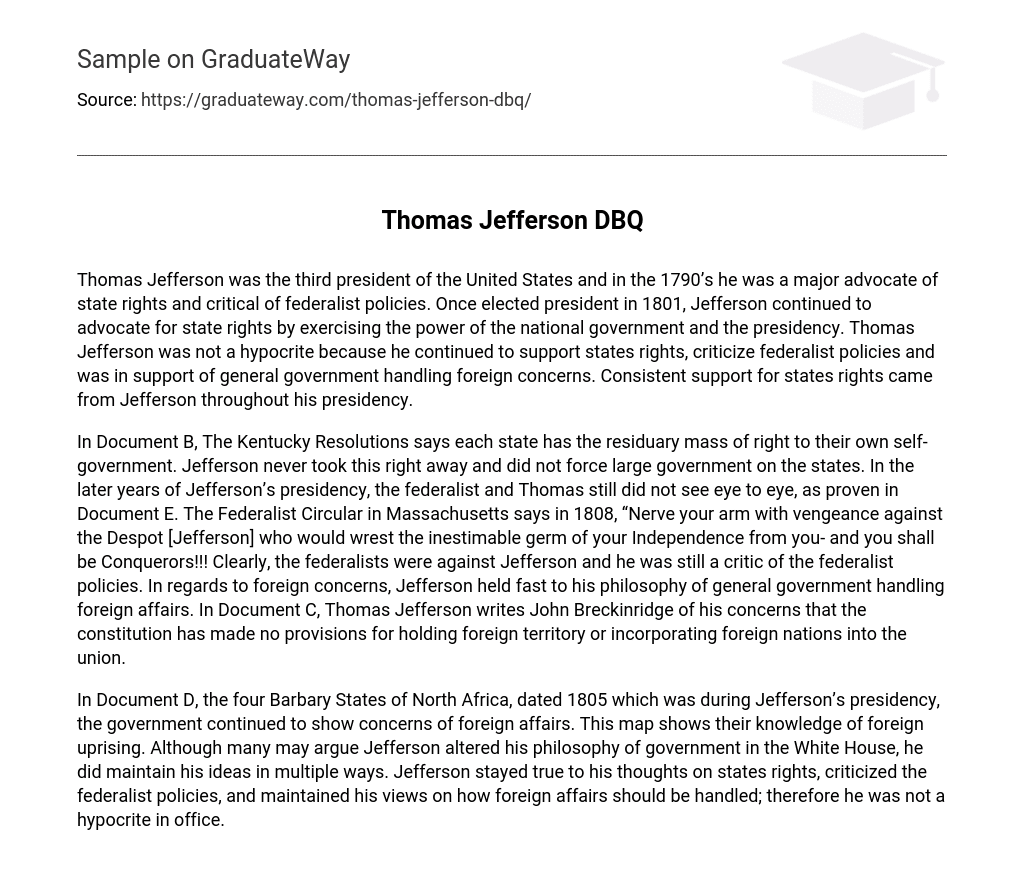Thomas Jefferson was the third president of the United States and in the 1790’s he was a major advocate of state rights and critical of federalist policies. Once elected president in 1801, Jefferson continued to advocate for state rights by exercising the power of the national government and the presidency. Thomas Jefferson was not a hypocrite because he continued to support states rights, criticize federalist policies and was in support of general government handling foreign concerns. Consistent support for states rights came from Jefferson throughout his presidency.
In Document B, The Kentucky Resolutions says each state has the residuary mass of right to their own self-government. Jefferson never took this right away and did not force large government on the states. In the later years of Jefferson’s presidency, the federalist and Thomas still did not see eye to eye, as proven in Document E. The Federalist Circular in Massachusetts says in 1808, “Nerve your arm with vengeance against the Despot [Jefferson] who would wrest the inestimable germ of your Independence from you- and you shall be Conquerors!!! Clearly, the federalists were against Jefferson and he was still a critic of the federalist policies. In regards to foreign concerns, Jefferson held fast to his philosophy of general government handling foreign affairs. In Document C, Thomas Jefferson writes John Breckinridge of his concerns that the constitution has made no provisions for holding foreign territory or incorporating foreign nations into the union.
In Document D, the four Barbary States of North Africa, dated 1805 which was during Jefferson’s presidency, the government continued to show concerns of foreign affairs. This map shows their knowledge of foreign uprising. Although many may argue Jefferson altered his philosophy of government in the White House, he did maintain his ideas in multiple ways. Jefferson stayed true to his thoughts on states rights, criticized the federalist policies, and maintained his views on how foreign affairs should be handled; therefore he was not a hypocrite in office.





